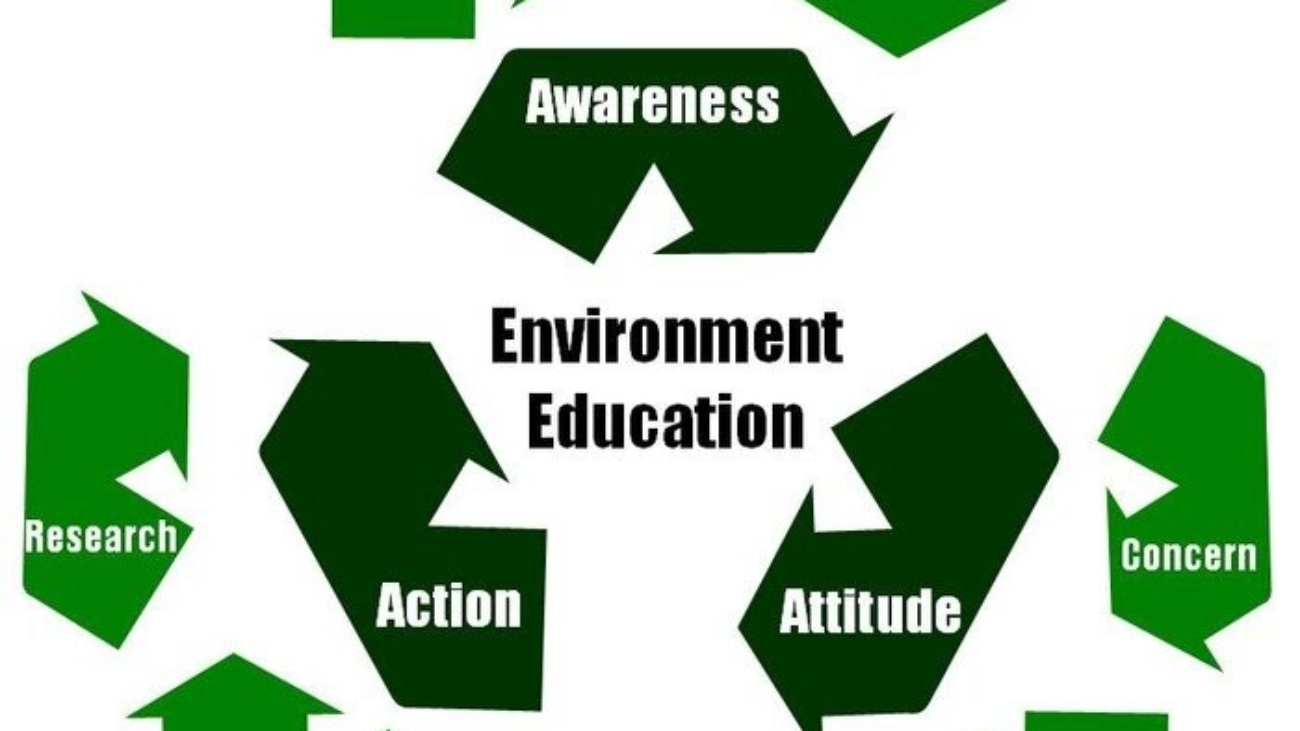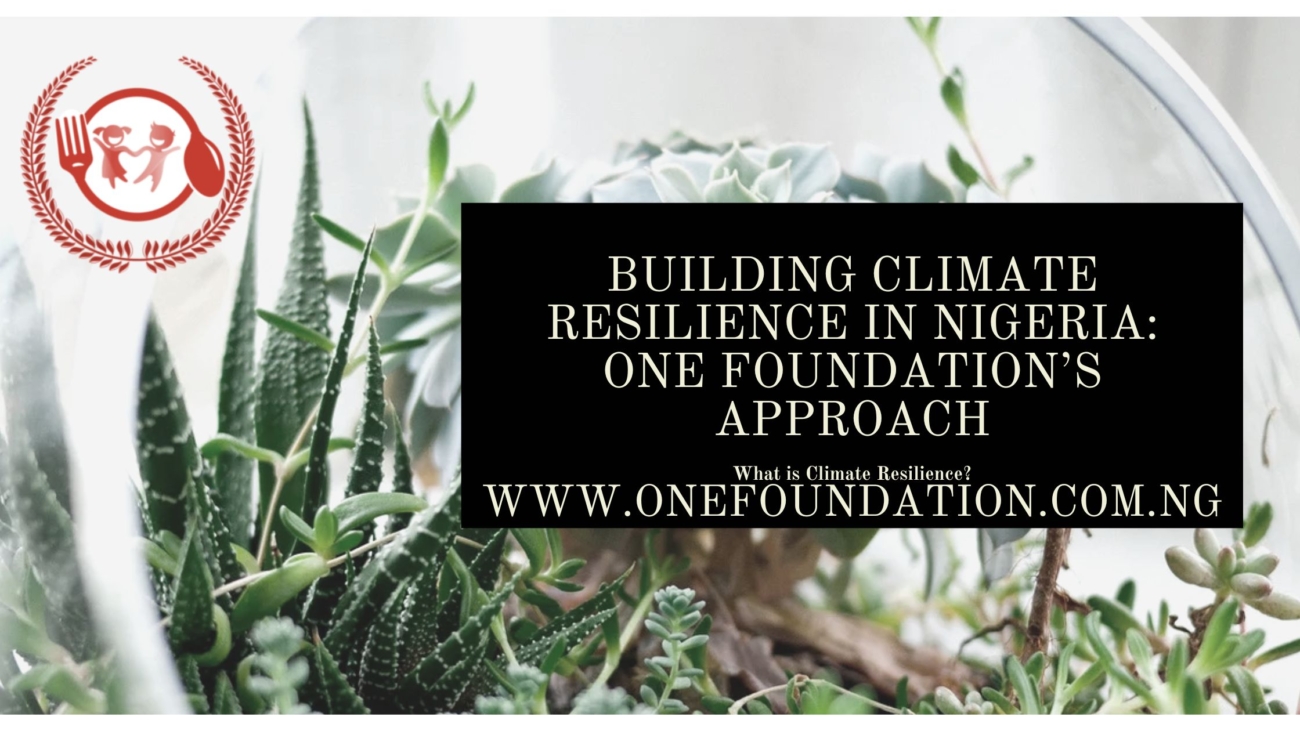The Role of Environmental Education in Building a Sustainable Future in Nigeria
In the journey towards sustainable development, environmental education plays a crucial role. By raising awareness and understanding about environmental issues, we empower communities to take actions that protect and preserve our planet. One Foundation is dedicated to promoting environmental education throughout Nigeria, fostering a culture of sustainability and equipping individuals with the knowledge to make informed environmental choices.
Why Environmental Education Matters
Environmental education is more than just understanding nature; it’s about recognizing the impact of our daily actions on the environment and learning how to live sustainably. Here’s why it’s essential for Nigeria:
- Awareness of Environmental Challenges
- Education provides insight into critical issues such as deforestation, pollution, and climate change, helping people understand the immediate need for action.
- Empowering Sustainable Practices
- Environmental education encourages individuals and communities to adopt sustainable practices, from conserving water and energy to recycling and waste reduction.
- Building a Resilient Future
- With knowledge about climate adaptation and resilience, communities can better prepare for environmental challenges, enhancing food security and protecting livelihoods.
- Encouraging Youth Engagement
- Youth play a pivotal role in environmental change, and education inspires young people to lead sustainability efforts, fostering a generation of environmentally conscious leaders.
One Foundation’s Environmental Education Initiatives
At One Foundation, we believe that everyone has a part to play in creating a sustainable Nigeria. Here are some of our key environmental education initiatives:
1. Community Workshops and Training
- We host workshops in communities across Nigeria, educating locals about environmental conservation, waste management, and sustainable agriculture.
- Through interactive sessions, we equip participants with practical knowledge they can apply in their daily lives.
2. Environmental Education in Schools
- By collaborating with schools, we integrate environmental education into the curriculum, teaching students about climate change, pollution, and biodiversity.
- Activities such as tree planting, waste segregation, and eco-projects allow students to experience environmental stewardship firsthand.
3. Youth Empowerment Programs
- Our youth programs focus on building environmental leadership skills, providing young people with the tools and resources to advocate for sustainability.
- Through partnerships and mentorship, we support youth-led initiatives that promote sustainable practices in their communities.
4. Public Awareness Campaigns
- Using social media, community events, and collaborations with local influencers, we raise awareness about pressing environmental issues and inspire action.
- Our campaigns cover topics such as energy conservation, climate resilience, and sustainable consumption, reaching a broader audience.
5. Eco-Friendly Practices for Farmers
- By promoting sustainable agriculture techniques, we help farmers reduce their environmental impact while increasing productivity.
- Our programs focus on soil conservation, organic farming, and climate-resilient crops, all of which contribute to long-term environmental sustainability.
The Benefits of Environmental Education for Nigerian Communities
When communities are informed about environmental issues and sustainable practices, the benefits extend far and wide:
- Improved Health and Well-being: Reduced pollution and better waste management lead to cleaner air, water, and surroundings, enhancing public health.
- Economic Opportunities: Environmental education opens doors to green jobs in areas like sustainable agriculture, conservation, and renewable energy.
- Enhanced Resilience to Climate Change: Communities equipped with knowledge about climate resilience can better protect themselves from natural disasters and food insecurity.
- Preservation of Biodiversity: Conservation practices help protect Nigeria’s diverse ecosystems, ensuring that future generations can enjoy the country’s natural heritage.
How You Can Support Environmental Education in Nigeria
Supporting environmental education doesn’t require a significant commitment—small actions can make a big difference. Here’s how you can get involved:
- Participate in Local Programs: Join environmental education programs in your community to learn sustainable practices and make a positive impact.
- Volunteer with One Foundation: We welcome volunteers who are passionate about sustainability to help us run workshops and educational campaigns.
- Raise Awareness in Your Community: Talk to your friends, family, and neighbors about environmental issues and encourage them to adopt eco-friendly practices.
A Vision for an Environmentally Conscious Nigeria
One Foundation envisions a Nigeria where every individual understands the importance of protecting the environment and takes action to preserve it. Through our environmental education initiatives, we aim to create a culture of sustainability that empowers communities, preserves natural resources, and builds a brighter future for generations to come.
For more information on our environmental education programs, visit our Projects Page and follow us on social media for updates. Join our WhatsApp Channel.
Together, let’s empower communities with the knowledge to protect our planet and secure a sustainable future.


